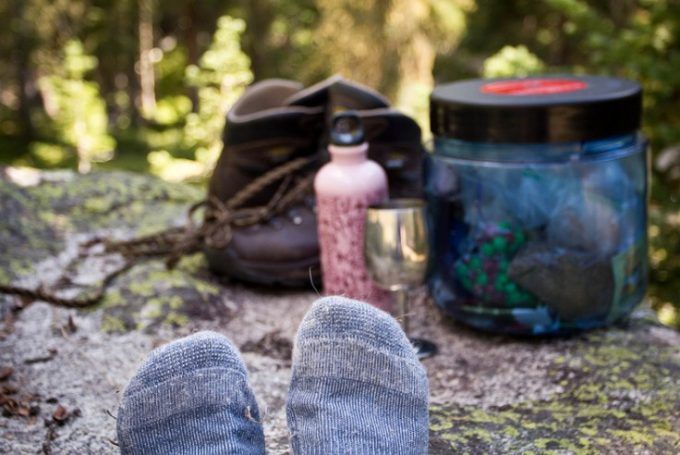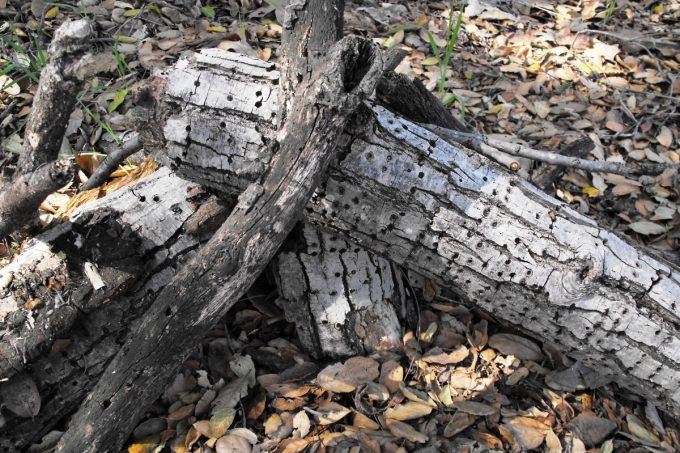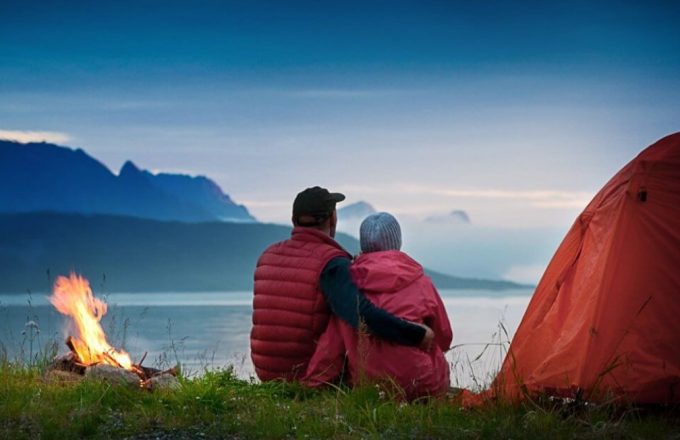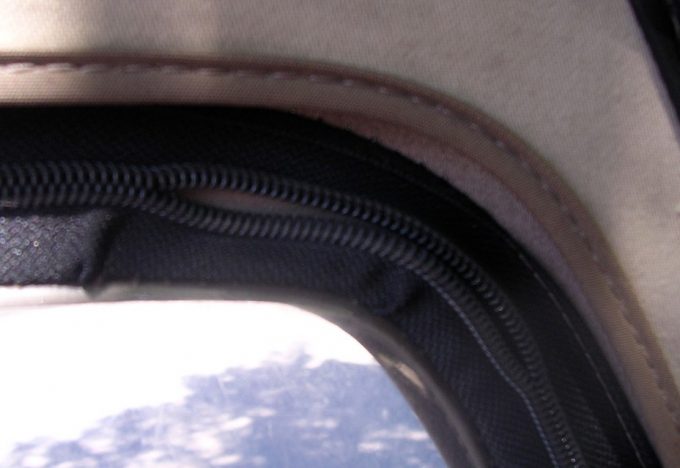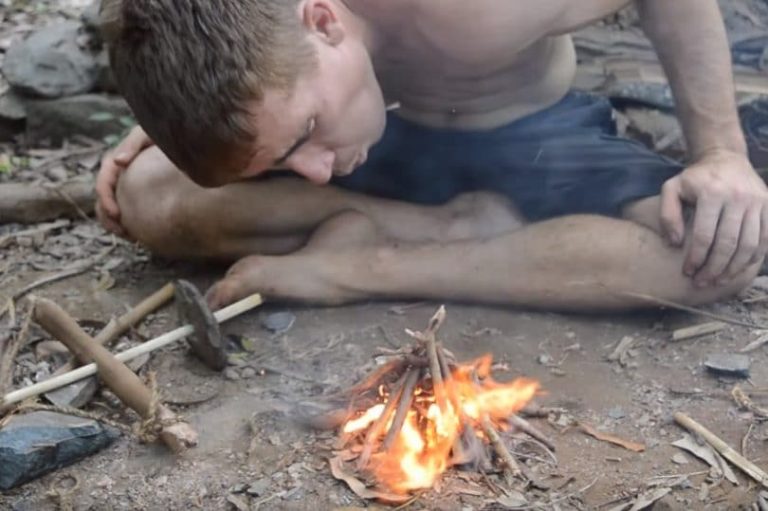How to Keep Bears Away from Campsite: The Right Ways to Bear Proof Your Camp
Whenever you go camping in the wilderness, you should always prepare for the worst possible scenarios that could play out. As unlikely as some of these might be, they do occur on rare occasions. Bears are something that all campers think about occasionally.
They are usually attracted to human campsites for a variety of different reasons, so in this article, we are going to teach you how to keep bears away from campsite so that you don’t have to worry about them at all.
Recognizing Bears and their Behavior
Before you even start to plan to keep bears away from your campsite, you should make yourself familiar with the different species of bear that could be found around you and their natural behavior.
Every outdoor explorer should know which different species of animal call the local area their home, so you should make sure that you check that before you head out on your adventure.
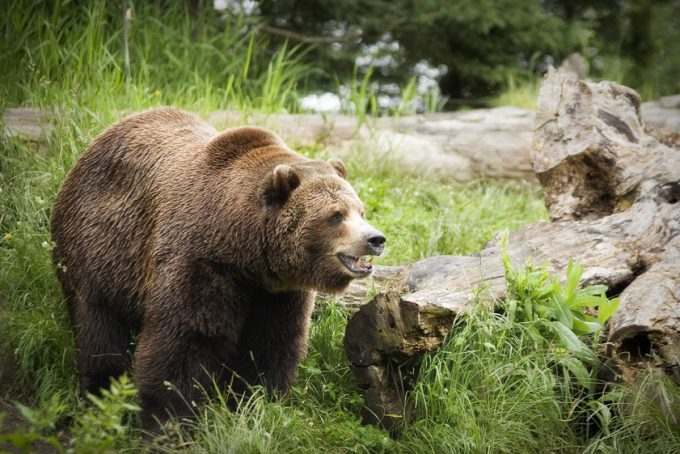
Black Bears are the most common species of bear that can be found in North America, although their color actually ranges from jet black to cinnamon. While they are vast in numbers, they are also known to be incredibly timid.
They usually only ever become dangerous if they are either cornered or threatened in one way or another. Brown Bears and Grizzly Bears are actually the exact same species of bear, although there are some notable differences between the two.
You have to remember that bears are incredibly curious animals that are capable of learning new things and changing their behavior based on their own experiences in the wild. Their sense of smell can span for miles and miles, so they can easily be attracted to campsites if the right preventative measures are not taken.
What Attracts Bears to Campsites?
As animals, bears are constantly on the lookout for different things that they can eat. Their sense of smell is the primary tool that they use regularly, attracting them to campsites that can be more than a mile away from their primary location if they catch a whiff of something that they want to investigate further.
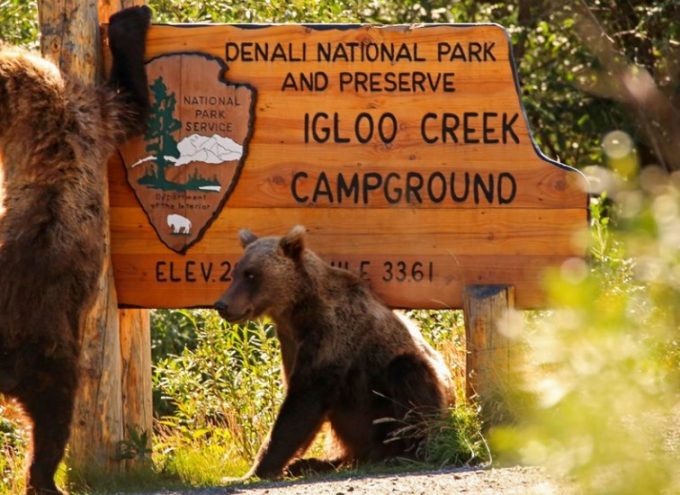
Their actual sense of smell is around seven times more powerful than that of a dog, something that you should always take into consideration as you start to bear-proof your campsite. To a bear, anything that smells like it might be food probably is food. Some of the main things that can attract bears to campsites include:
Camping near a natural source of food
If you decide to set up your campsite near a natural bear food source, then you should expect to have bears wandering around your campsite sooner or later. We would recommend that you avoid camping near things like berry patches. You should also make sure that you scour the area for any signs of bear activity before you set up your camp.
Camping too close to your own cooking area
If you set up your camp too close to your own cooking area, then your entire campsite is going to end up smelling like it could be a source of food. Generally speaking, you should distance your sleeping area from both your kitchen area and your hanging food cache, but we are going to talk more about this in the ‘Bear Proofing your Campsite’ section below.
Taking your food to your sleeping area
You should never, ever take food into the sleeping area of your campsite, regardless of whether or not you think you might need a snack during the night. Bears can and will be drawn to your sleeping area by the smell of food. Due to this, any eating should be done strictly in the dining/cooking area.
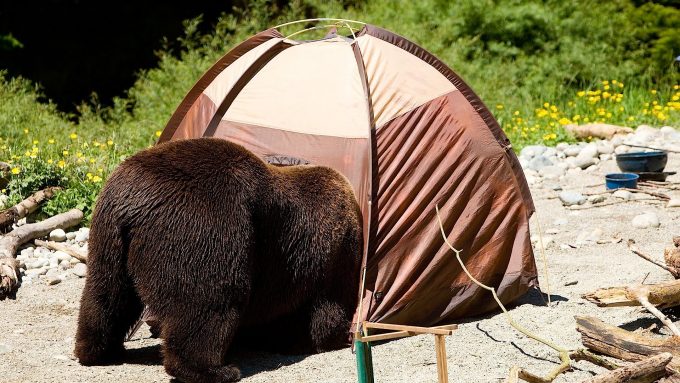
Any leftovers should then be either burned or buried well away from your camp. You should also ensure that you bury them well away from your primary source of water. Simply put, all of this means that bears can be attracted to a campsite by anything that they believe might be a source of food.
That does not just mean the food that we eat while we camp, it can also include our garbage, our cooking utensils, our toothpaste, and anything else that has even the smallest potential to be edible.
Another primary thing that you need to consider is the fact that bears can occasionally be drawn to campsites simply because they are campsites. If a bear has successfully found food in a campsite before, then it will already have learned to associate campsites with food. These bears can become very unpredictable and increasingly aggressive.
Bear Proofing your Campsite
There is no way to completely avoid all of the different things that can attract bears to campsites, as a lot of them are camping essentials.
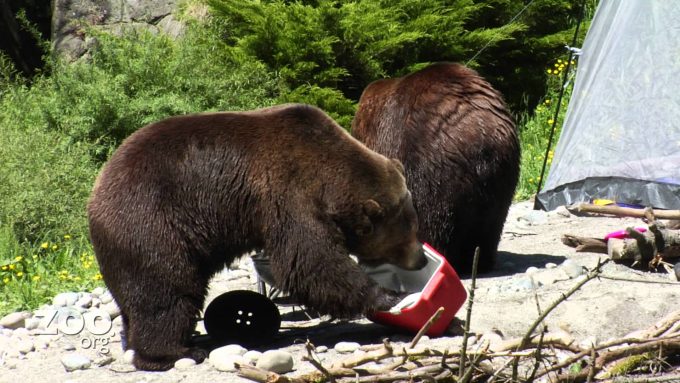
But, there are a number of different steps that you can take to ensure that bears don’t enter your campsite either way. They include:
Choosing the right location
The area that you choose to camp in is a really important and vital factor when it comes to deterring bears. Firstly, as we have already mentioned, you need to ensure that you are not camping near either a natural food source or near an area where you can already find signs of bear activity.
Once you have done this, you need to make sure that there is enough space to set your campsite up in an effective way. Ideally, your campsite should be laid out like a triangle. The corners would be divided into a sleeping area, a kitchen/dining area, and a hanging food cache.
Each of these locations should be at least 100 yards away from the others. You should also take note of which direction the wind is actually traveling in.

You should always try to place your sleeping area in a location that is upwind of the kitchen area so that the smells from the kitchen area are not traveling downwind towards the sleeping area. That way, even if bears are attracted to your campsite, they should stay well away from the sleeping area.
Learning how to create a proper bear hang
You should be aware of bear hangs and their importance if you are going camping in the backcountry. A bear hang is a technique that involves storing all of your food in a bag that is both waterproof and 100% odor-free. You then have to store the bag high in the air, preferably on a strong tree branch.
Most people advise that your bear hang should be at least 12 feet up in the air, but it should also be at least 6 feet away from the actual trunk of the tree. Remember that bears can climb, so they will swipe your bear hang if it is too close to the trunk. Bears will usually make multiple attempts to get a bear hang down, especially if they have gotten into one that belonged to a previous camper.
They do this because they have really good memories, so they already know what will be inside of the bear hang. This makes getting it down quite the important task for them. If you can, you should avoid hanging your bear hang on a tree that has previously been used, as bears tend to remember locations like that.
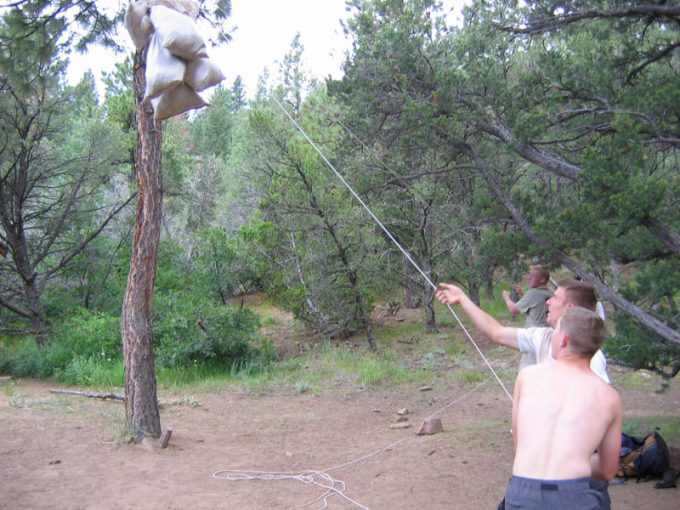
Top tip: The best method for hanging a bear hang in a tree involves using parachute cord. While you should aim to hang it at least 12 feet off of the ground, it would be best if you could hang it as high up as possible. As long as this does not result in your food getting stranded that is. Parachute cord is inexpensive and really durable, so it is the best tool for the job.
Keeping your campsite meticulously clean
Your campsite should always be kept as clean as possible while you are there. Remember, you should never take a potential source of food into your sleeping area, as this could attract bears. This includes things like toiletries, toothpaste, and cosmetics, as bears will often see these as potentially edible goods if they smell them.
You even need to consider the fact that the clothes that you wore while you were cooking will now smell like the food that you had, so they should also be kept well away from your sleeping area.
While your main goal here should be to thoroughly protect your sleeping area, you also have to pay attention to the other areas of your campsite. For example, any leftover food should be swiftly buried well away from any of the three separate locations that make up your campsite.
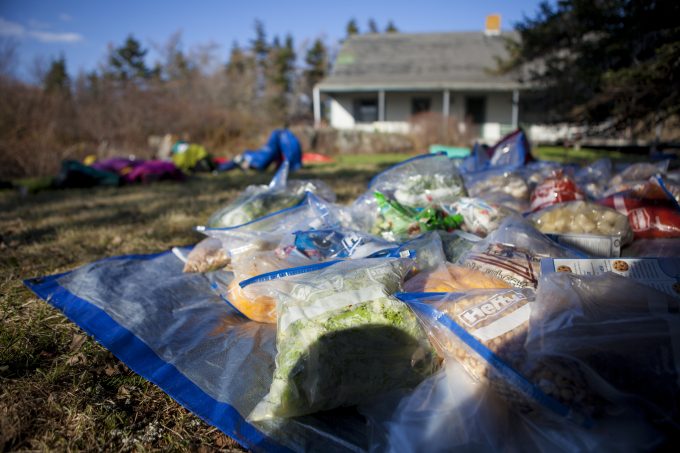
This includes the smallest of morsels, even if it is just a single piece of bread. You should also make sure that you do not bury the leftovers near your primary source of water. When it comes to cooking and eating your food, you also need to make sure that you clean your cooking and eating utensils as soon as you are finished.
Don’t waste any time. If you wait too long, then you run the risk of the different food odors being carried away by the wind. Remember that bears can smell things that are more than a mile away from them, so you should never take any chances.
Make sure that you have different clothes for different areas
One thing that most campers don’t think to consider is the fact that food odors cling to our clothing. Due to this, you should make sure that you have one set of clothes for the dining/cooking area and one set of clothes for your sleeping area.
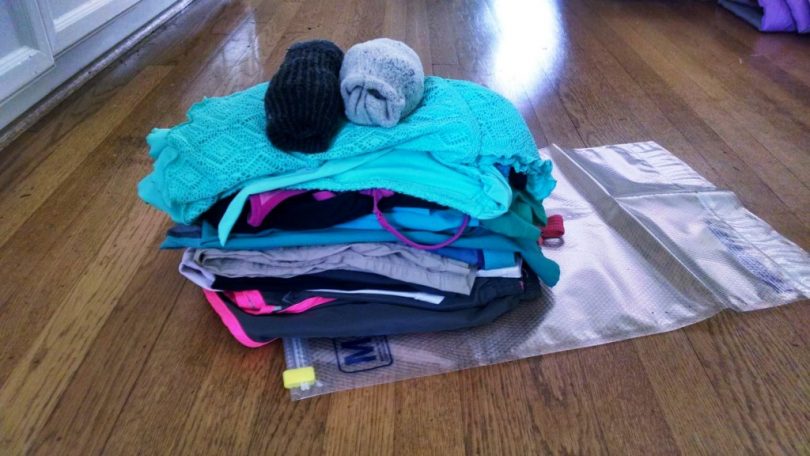
These should never be worn anywhere other than their intended area. You should even make sure that you change your clothes well away from either of these two areas, before bagging the set that will have lingering smells attached to it.
Invest in a good bear canister
A lot of famous national parks now require you to take a bear canister with you if you are planning on camping in specific areas. You should always check for any local requirements before you go, as the list now includes places like Yellowstone and the Rocky Mountains.
A bear canister is a type of hard food locker that supposedly cannot be torn open by a bear unless they have access to a secret method (like a lot of bears do).
You are supposed to store your bear canister at least a few hundred feet away from your actual campsite so that any bears that find your bear canister will not also be drawn to where you are. Do not expect to find your canister in the same place when you wake up.
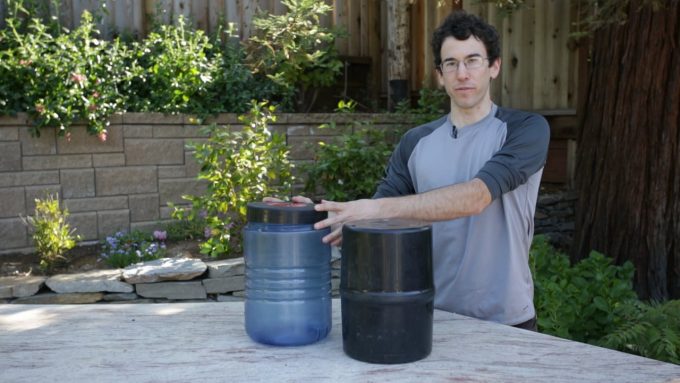
Top tip: Bears are notorious for knocking bear canisters around through the night. You should paint your canister a bright color, as that will make it much easier to spot in the morning.
Don’t forget your bear spray
The phrase ‘bear spray’ is enough to make a lot of campers skeptical enough to roll their eyes, but scientific research has managed to successfully prove that using bear spray really is the most effective way of deterring bears away from your campsite.
One study that was done by two professors from the University of Calgary involved studying hundreds of different bear attacks, it found that the use of bear spray stopped these attacks 93% of the time. Only 2% of people who used the spray were actually attacked, compared to 56% of people who were attacked if they tried to use a gun.
One study that has proved this to be true was undertaken by two different professors at the University of Calgary. They spent a lot of time studying hundreds of different attacks. They found that the use of bear spray actually stopped these attacks 93% of the time.
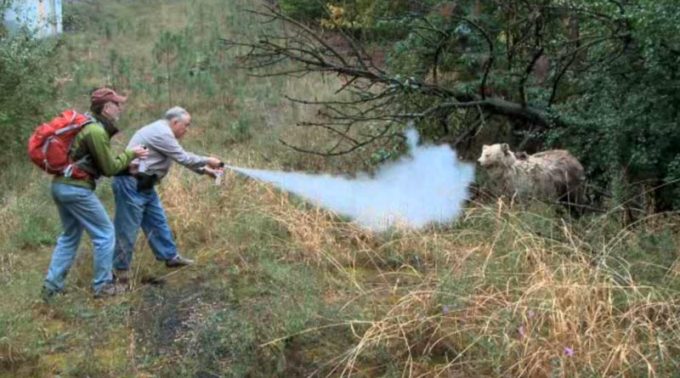
This meant that only 2% of people who actually used their bear spray were attacked. When you compare this to the 56% of people who were attacked when they attempted to run or to use a gun, it really stands out statistically.
The Worst Case Scenario: A Bear Encounter
An encounter with a bear is much rarer than most people will think, as bears like to try and avoid us at all costs. Most bears that are encountered by people who are hiking actually run away, usually before the people have even had the chance to notice that the bear was there. But, you still have to know what you should do in a worst case scenario:
Rule 1: Do not run!
Running is something that you should rarely ever do when you encounter a wild animal. A great example as to why can actually be seen in a large number of different dog breeds. Have you ever noticed that dogs are a lot more likely to chase an animal as soon as it starts to run, even if they left the animal alone while it was still?
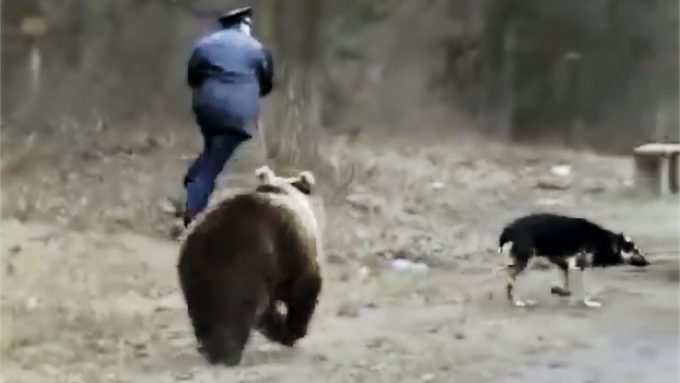
This sort of behavior is known as a predatory instinct. A bear will be more likely to chase you if you run and a bear can run much faster than you can, so running really should be a last resort. A bear should recognize that you are a human, opposed to associating you with potential prey.
Rule 2: Be calm
You should try to keep talking during an encounter with a bear, moving your arms and waving them slowly up and down while you do so. This makes the bear recognize you as a human and it will often be enough to make a bear leave you alone. Never make eye contact with the bear while you are doing this, but make sure that you know exactly where the bear is.
Rule 3: Staying calm if the bear refuses to leave
Try to stay calm if the bear does not leave straight away. Most of the time, the bear will simply be feeling indifferent towards your actions. In the worst case scenario, the bear could feel either threatened or predatory. The last two are the most dangerous for us, but there are a number of signs that you can look out for.
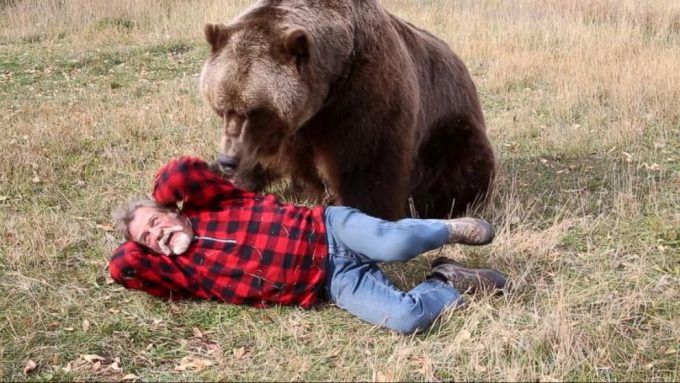
Bears are really good at showing aggression. Most of the time they will start weaving their heads back and forth, smacking their lips together, chomping their teeth together, and slapping their paws down onto the ground. If you notice any of these signs, you should continue to talk and move your arms around. Never turn your back on the bear.
Rule 4: What to do if the bear approaches you
A bear that approaches you could be doing so for a number of reasons, but you should always err on the side of caution. A bear that is simply afraid of you is just as capable of attacking you as a bear that is showing predatory signs.
If you believe that the bear is being defensive, then you need to lie down flat on the ground. Wrap your arms around your head and your neck to protect them. Try not to take your backpack off, as it will separate you from the bear. You should not get up until the bear has left the area.
If you believe that the bear is showing predatory signs, then you need to go with a completely different set of tactics. You need to make yourself bigger than the bear, you can do this by being as loud as possible and making yourself look as big as possible by stretching your arms out.
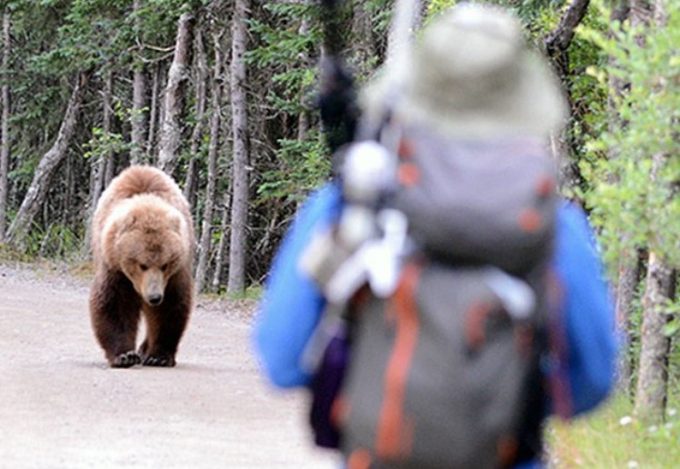
If you can grab a stick and wave it around, then do. This can often be enough to make a predatory bear leave you alone. If it approaches you, it would be the right time to use your bear spray.
Remember…
Encountering a bear in the wild is incredibly rare, but it is still a good idea to be as prepared as you can be. Remember to think about the location of your campsite and how you will prevent all of the smells from spreading around the area, don’t forget to separate your clothes by area. As long as you have bear spray with you, you will even be safe in a worst-case scenario.
Have you ever encountered a bear in the wild, or do you have a specific technique that you use to deter bears away from your own campsite? We would love to hear about either in the comments below.

